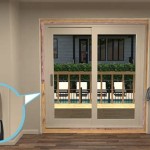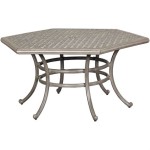Essential Aspects of Concrete Patio Plans
A well-designed concrete patio can enhance the beauty, functionality, and value of your outdoor space. Whether you're a seasoned DIYer or working with a contractor, proper planning is crucial for a successful project. Here are essential aspects to consider when creating concrete patio plans:
1. Site Assessment
Before you start designing, perform a thorough site assessment. Determine the location, size, and shape of your patio based on available space and your intended use. Consider factors such as drainage patterns, sun exposure, and access to utilities.
2. Material Selection
Concrete patios offer a wide range of textures, colors, and finishes. Choose a concrete mix and finish that complements your home's architectural style and outdoor decor. Consider stamped concrete for a textured look, exposed aggregate for a natural finish, or colored concrete for a customized appearance.
3. Design Elements
Incorporate design elements such as seating areas, fire pits, built-in planters, and pergolas to enhance the functionality and aesthetics of your patio. Plan for comfortable and inviting seating arrangements, and include shade structures to create a comfortable outdoor space.
4. Drainage and Slope
Proper drainage is essential to prevent water pooling on your patio. Plan for a slight slope away from your home or any structures to direct water away from the seating areas. Additionally, consider installing a drainage system or French drain to ensure adequate water dispersal.
5. Expansion Joints
Concrete expands and contracts with temperature changes. To prevent cracking, incorporate expansion joints in your patio design. These joints should be spaced at regular intervals and filled with a flexible sealant to allow for movement without compromising the structural integrity.
6. Reinforcement
Reinforcing the concrete with rebar or wire mesh strengthens the patio and reduces the risk of cracking. Determine the reinforcement requirements based on the size and anticipated load of the patio. Proper reinforcement ensures durability and longevity.
7. Finishing and Sealing
After the concrete has been poured and cured, apply a sealer to protect it from stains, wear, and weather damage. Sealing also enhances the aesthetic appeal of your patio by deepening the color and creating a glossy or matte finish.
8. Regular Maintenance
Concrete patios require regular maintenance to keep them looking their best. Sweep or hose down the patio regularly to remove dirt and debris. Reseal the concrete every few years to maintain its protective barrier and extend its lifespan.

Concrete Patio Design Ideas And Cost Landscaping Network

Concrete Patio Ideas To Choose From For Your Compound Decorifusta Designs Design

9 Small Patio Designs With Big Impact Romanstone Hardscapes

Concrete Patio Ideas Design Your Backyard Network

Backyard Stained And Stamped Concrete Patios

7 Concrete Patio Design Ideas To Enhance Your Home

20 Design Ideas For Your Concrete Patio

Concrete Patio Design Ideas And Cost Landscaping Network

Diy Concrete Patio In 8 Easy Steps How To Pour A Cement Slab

42 Inspiring Stamped Concrete Patio Ideas Designs Backyard








